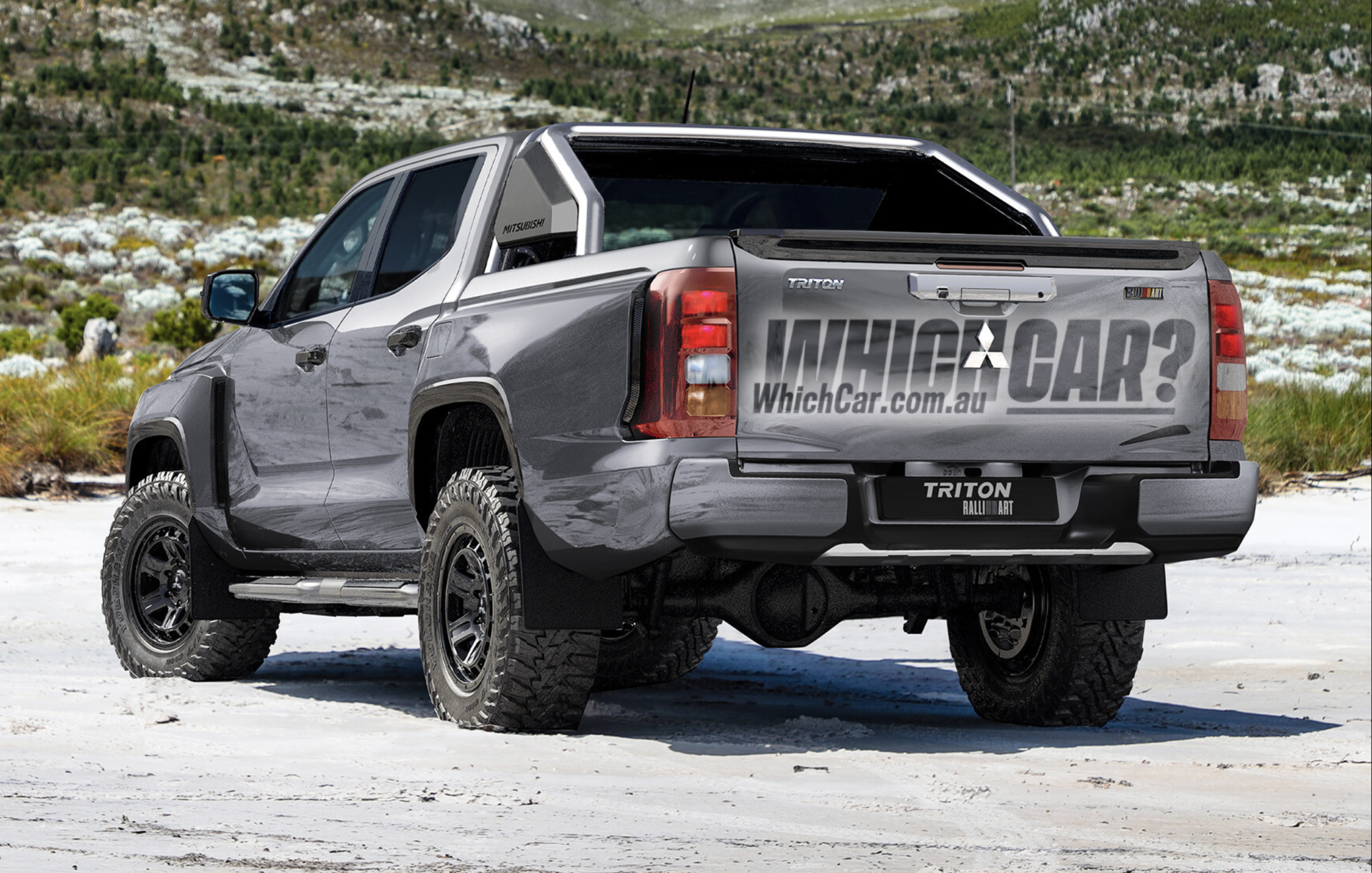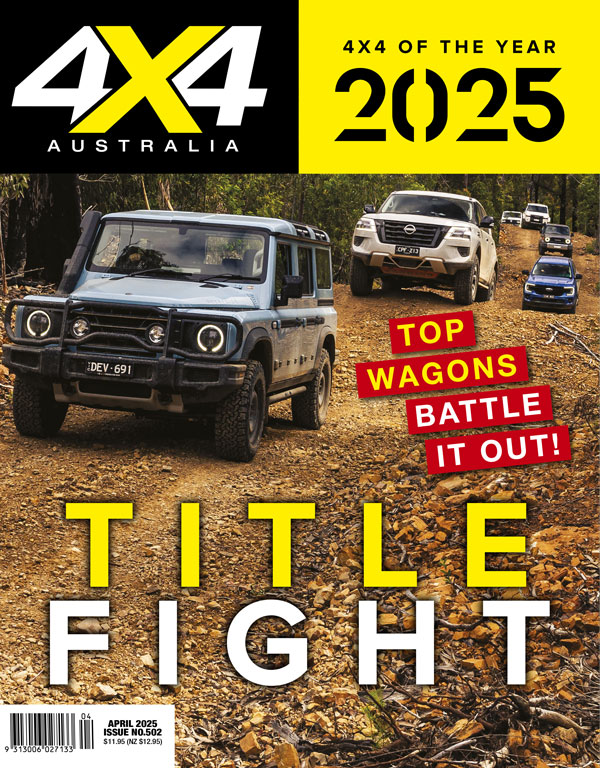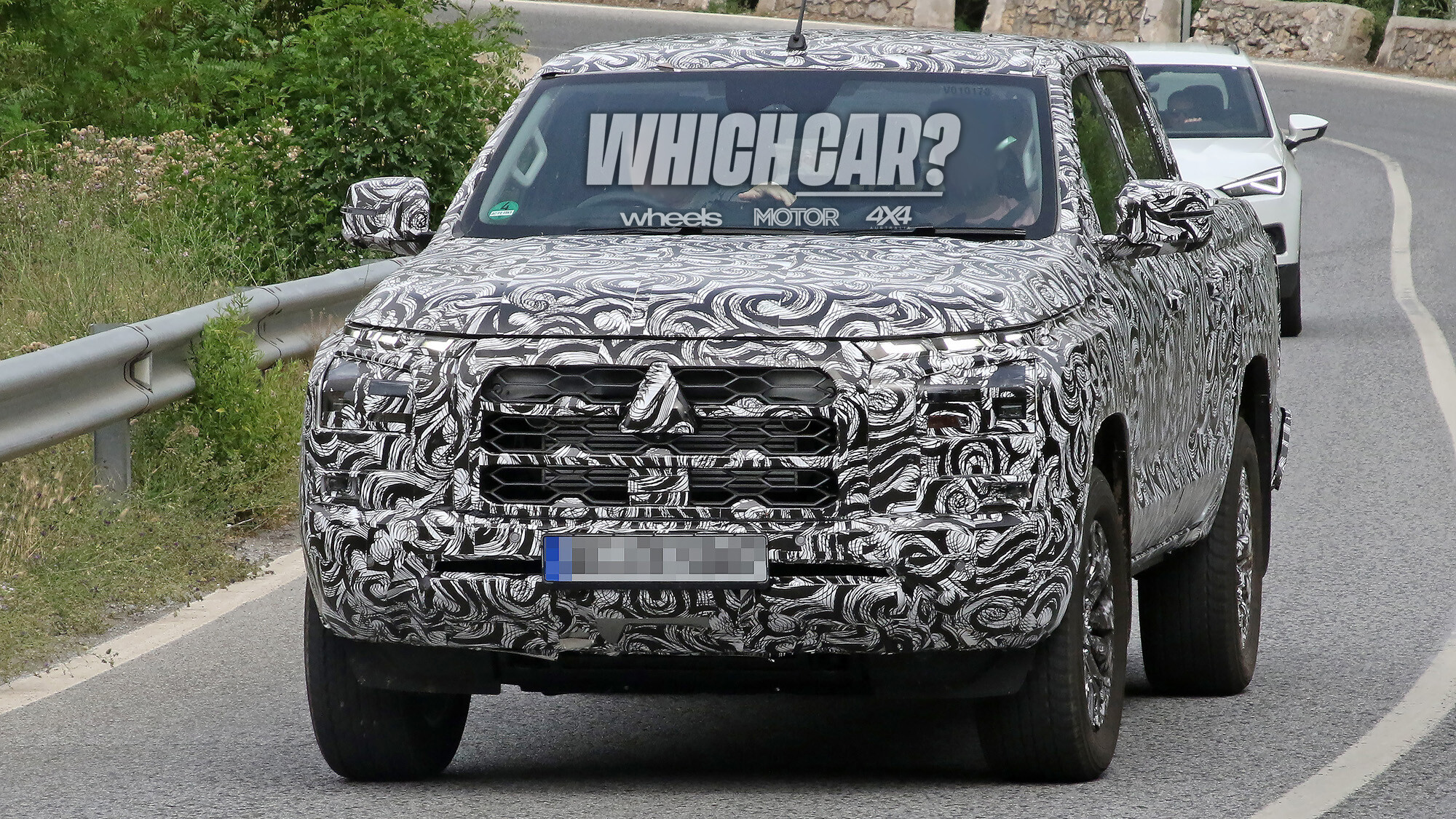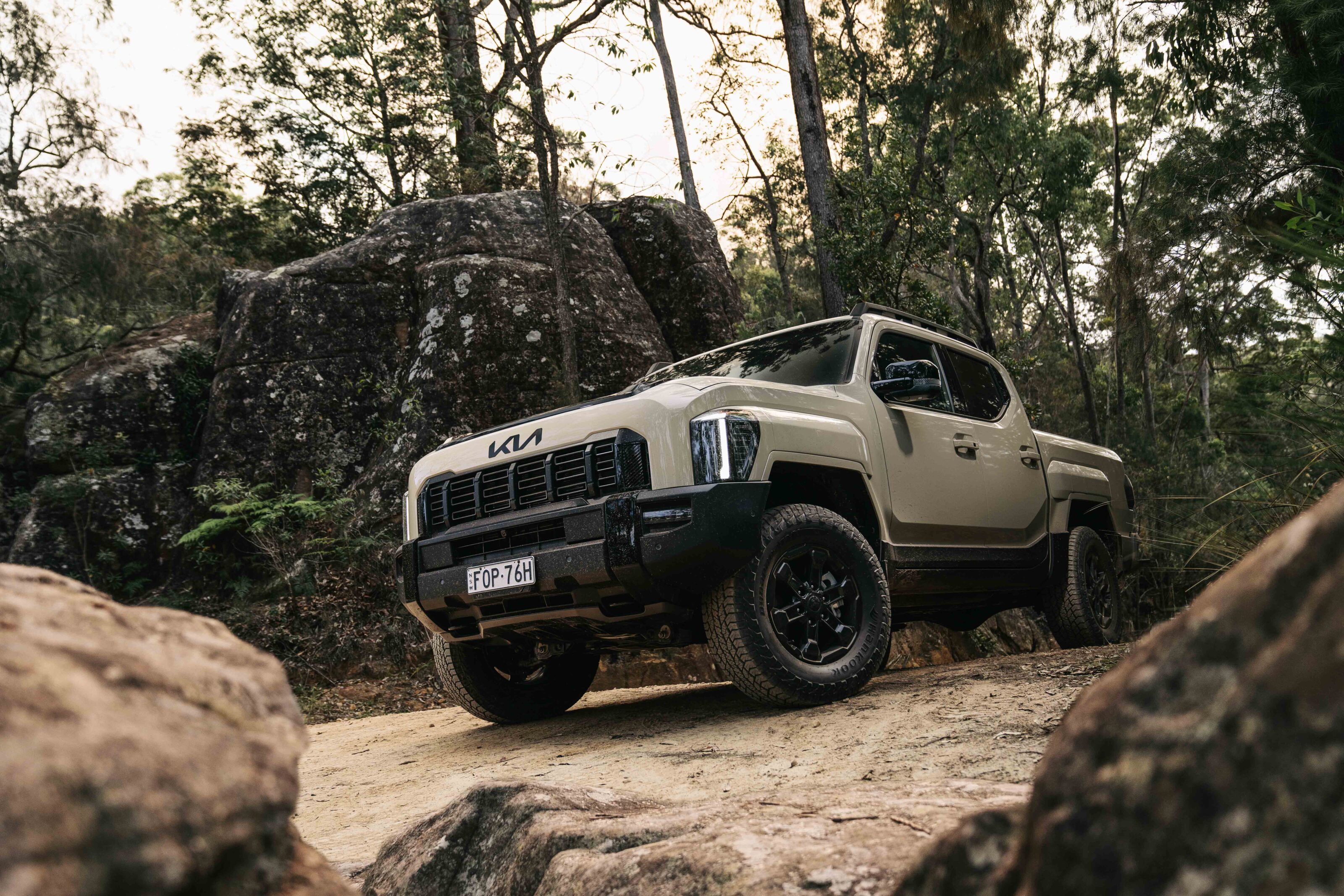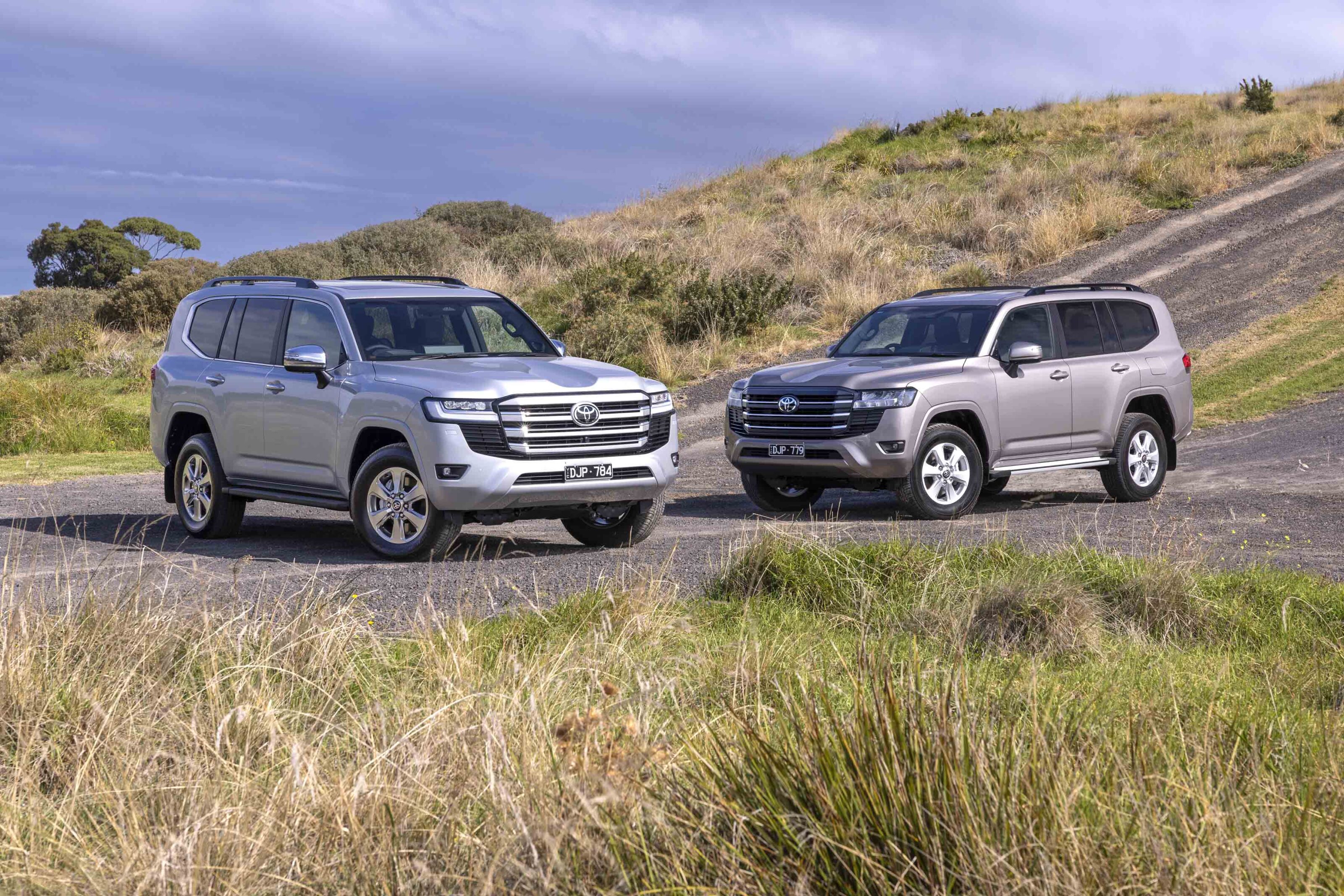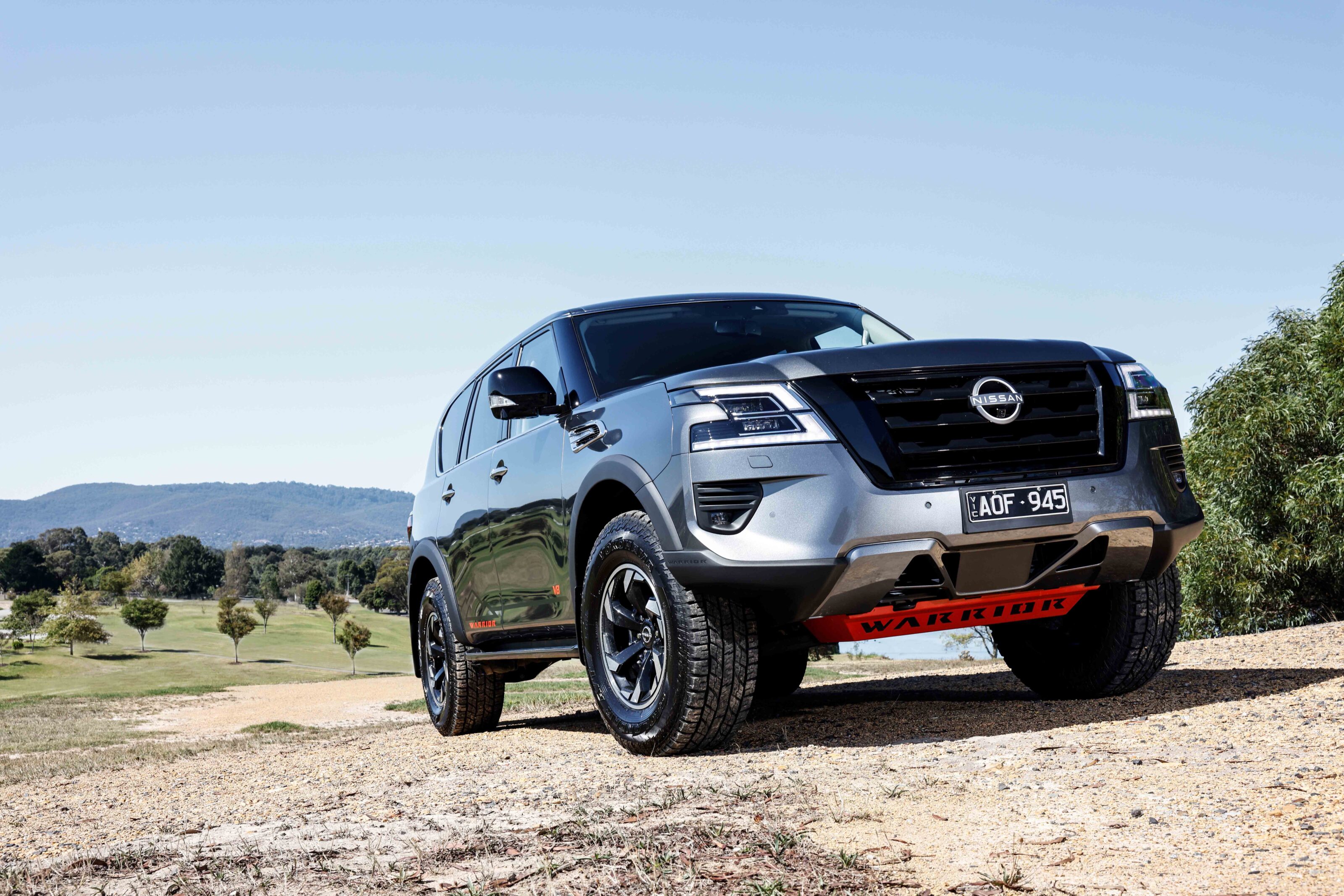The fifth-generation Mitsubishi Triton was left without a factory-sanctioned halo variant until the very end when Australian second-stage manufacturer Walkinshaw launched the worked-over Triton Xtreme as a Nissan Navara Warrior rival.
It was a short 18 months from sketch to a limited 500-strong run, and the capability of the product in such a quick turnaround impressed Triton chief product specialist Yoshiki Masuda.
When asked if there’s a works Triton above GSR in the pipeline to rival the likes of the HiLux GR Sport, Ranger Wildtrak X, and Nissan’s Warrior, general manager marketing & product strategy Oliver Mann noted how the Walkinshaw relationship had shown Mitsubishi what was possible in our market.
“Global corporations have to make global decisions”
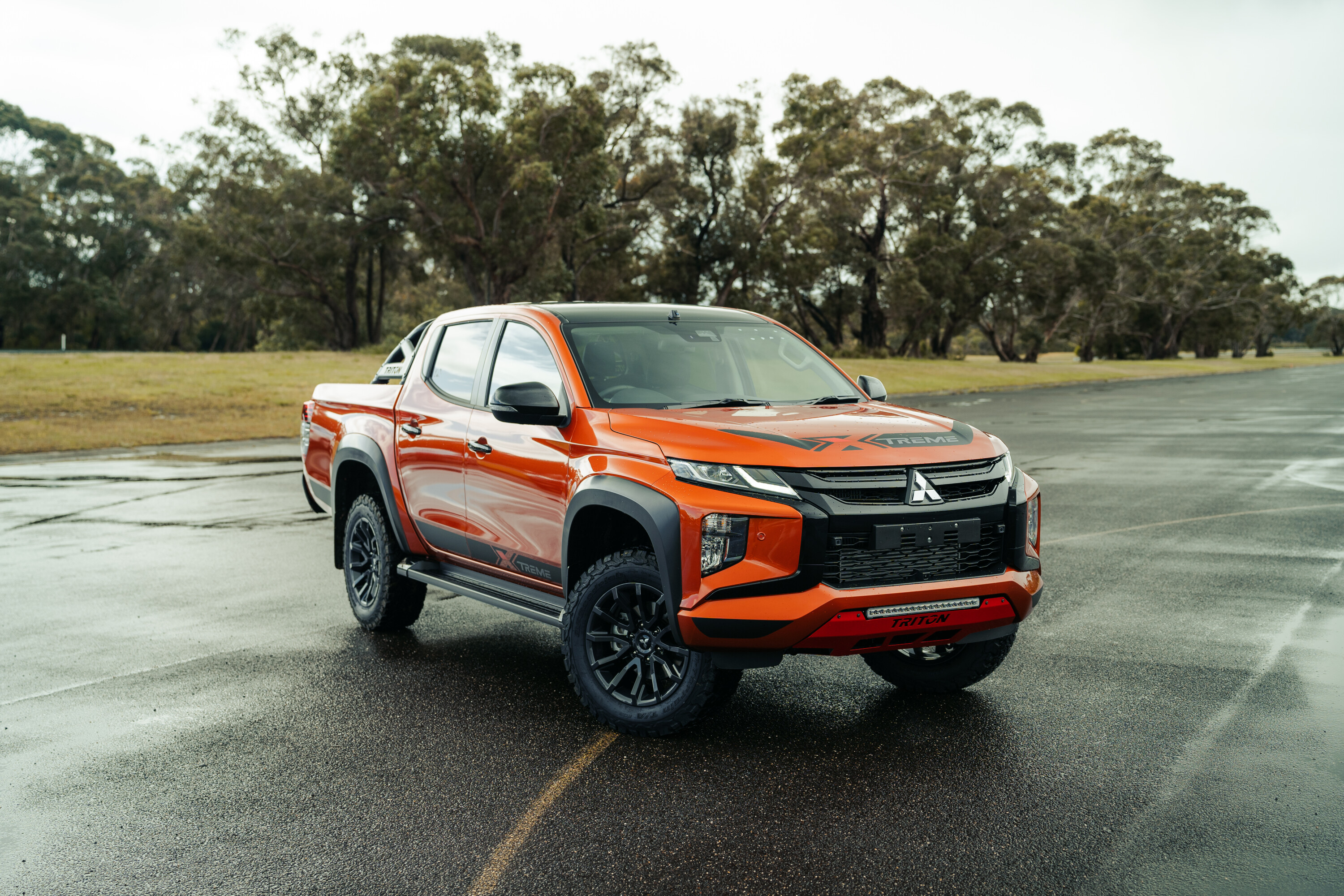
“We have looked at the vehicle and driven the vehicle, and we’ve been impressed with what [Walkinshaw] has done.
“It’s probably another one of those exploratory projects that explores where the pick-up proposition can go as a performance variant”, he told 4×4 Australia.
Masuda-san said: “Of course, you know, we want to have a more high-end model hero car and we want to expand in that direction”, but that currently, the launch line-up is the brand’s focus, followed by expanded single- and club-cab offerings.
“[Triton Xtreme] helped, I think, inform what the market opportunity might look like from an Australian perspective but obviously, global corporations have to make global decisions”, noted Mann.
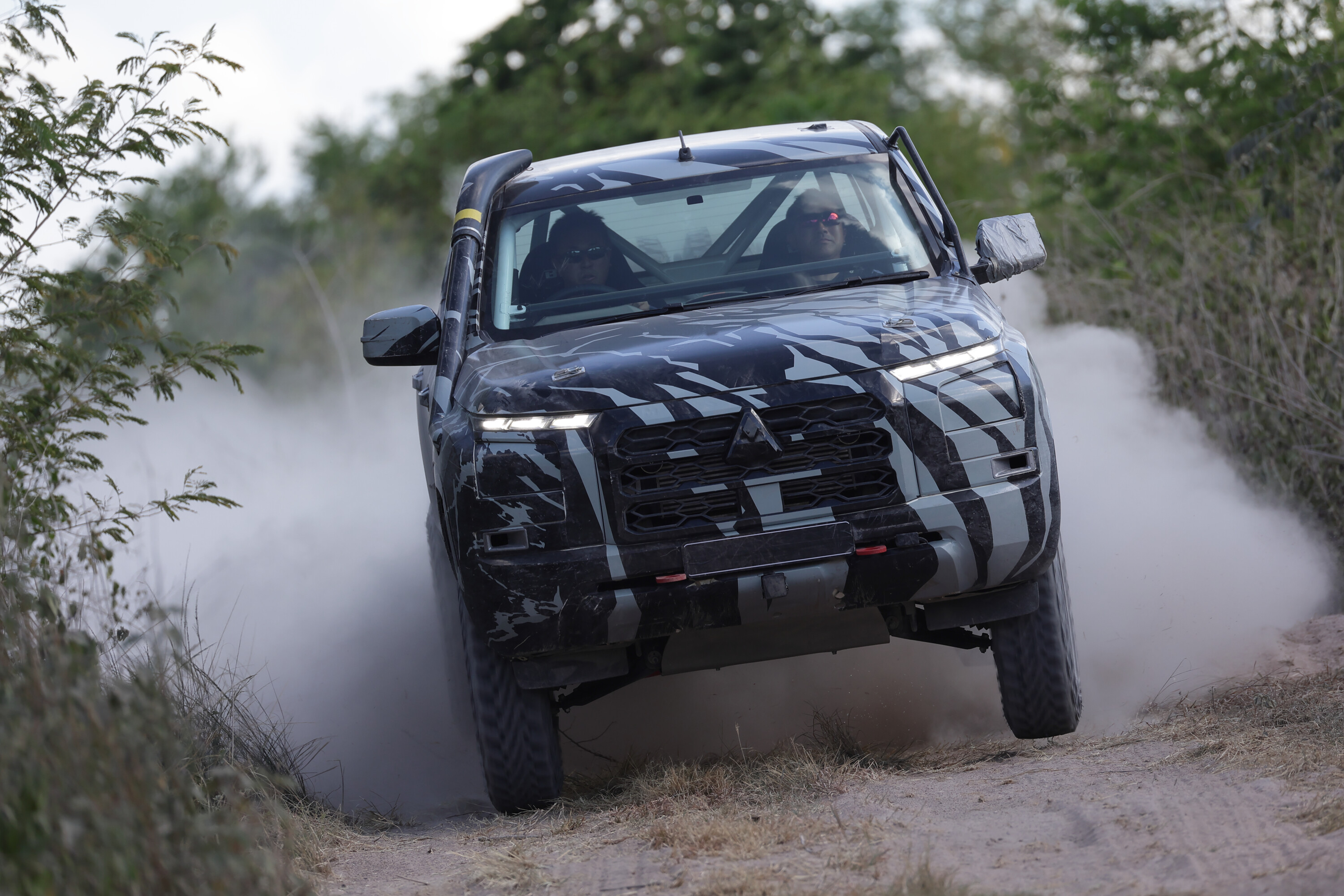
Similar to Premcar’s targets with the Navara Warrior, Walkinshaw’s goal with Triton Xtreme goal was to craft a reliable, warranty-backed ute with upgrades that enhanced both off- and on-road capability.
With the majorly enhanced sixth-gen Triton – its much stronger frame, 50mm wider track and 130mm longer wheelbase – Mitsubishi has an even sturdier base to work from, and Masuda-san reckons the Ralliart in-house tuning arm can make a tougher ute.
Expect similar upgrades to wheels and tyres for a Ralliart version; a suspension lift is a given. Extra underbody protection and visual enhancements are sure to play a part, too. We’ve already commissioned a speculative Triton Ralliart render to give you an idea of what to expect.
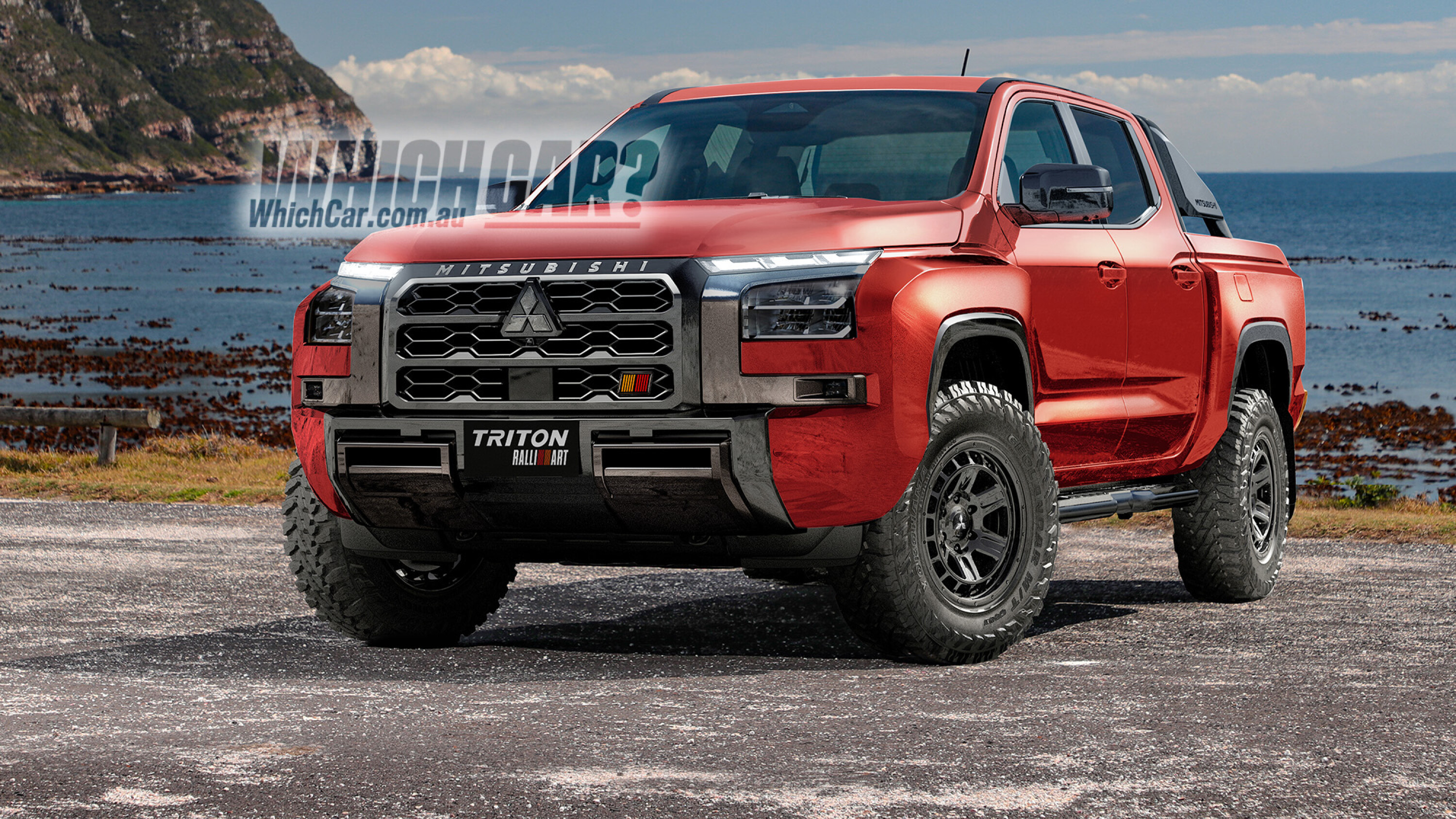
Mitsubishi developed the Triton’s frame with electrification front of mind, and is currently weighing up whether battery power or a plug-in hybrid powertrain (either petrol- or diesel-based) will best suit the ute application.
We also know Ralliart has been playing with the idea of performance-oriented plug-in hybrid tech, hinting at a tri-motor Outlander Ralliart halo concept in 2022. It’s possible this technology could feature in a future hi-po Triton – electric motors are famously not short on grunt, and a PHEV Triton could give Mitsubishi a true Ranger Raptor rival.
There’s another segment of dual cab buyers Mitsubishi sees potential in, though, those more interested in on-road presence, cabin presentation, and towing. The proliferation of older couples looking to explore Australia has seen the rise of plush specs including the $76,990 (before on-road costs) Ford Ranger Platinum.
Featuring 20-inch alloy wheels, quilted Nappa leather upholstery, heating and ventilation for the front seats, wood trim, brand-name stereo and more, the flagship Ford’s spec sheet reads more Mercedes than Mitsubishi.
The new Triton is capable of towing up to 3.5 tonnes (braked) and promises a more secure on-road drive with Australian-tuned steering bringing it closer to a large SUV than ever, so perhaps the luxe route is the one down which Mitsubishi should go.
Regardless of whether luxury or capability is where the Triton’s future variants will go, the team was not discussing details of a potential Ralliart or other halo. However, Masuda-san enthusiastically told 4×4 Australia that a ‘dream’ Triton is “really high up on my to-do list.”


